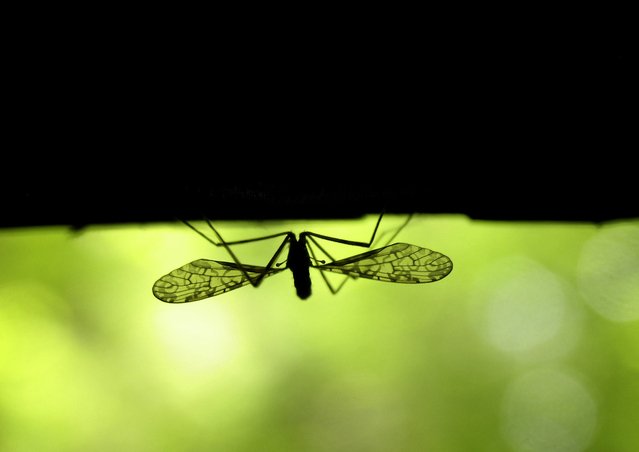Suffolk County Health Commissioner Dr. James L. Tomarken announced that 19 mosquito samples collected between 8/16 and 8/18 have tested positive for West Nile virus.
Suffolk County, NY - August 26, 2016 - Suffolk County Health Commissioner Dr. James L. Tomarken announced today that 19 mosquito samples (all Culex pipiens-restuans) collected between August 16 and August 18, 2016, have tested positive for West Nile virus. The samples were collected from Melville (1), Islip (1), Oakdale (1), East Hampton (1) Stony Brook (1) Huntington (1), Huntington Station (2), Northport (1), Commack (2), Smithtown (2), Holtsville (3), North Patchogue (1), Yaphank (1) and Rocky Point (1).
To date this year, 110 mosquito samples and 14 birds have tested positive for West Nile virus. No humans or horses have tested positive for the virus in Suffolk County this year. No mosquito samples have tested positive for Zika virus in Suffolk County.
Surveillance indicates that the Asian Tiger Mosquitoes (Aedes albopictus), are presently active in Suffolk County. Asian Tiger mosquitoes are small mosquitoes with black and white stripes that are known to bite aggressively near your feet and ankles during the day.
“We recommend that residents take three actions if they encounter these daytime biters,” said Dr. Tomarken.
-
Eliminate stagnant water where mosquitoes breed by dumping the water and scrubbing the containers weekly to remove the eggs;
-
Use mosquito repellent with EPA approved labeling on the product and follow instructions;
-
Consider using dunks, treating yards with barrier type sprays containing permethrin as the active ingredient, or hiring licensed pesticide applicators.
If these actions don’t help, residents may contact the Department of Public Works’ Vector Control Division at 631-852-4270 or via the web to request a vector control crew to check the area.
“Adult spraying for Asian Tiger mosquitoes isn’t very effective as it reduces their numbers for only a few days before new mosquitoes emerge from larvae that has been thriving in containers,” said Tom Iwanejko, chief of vector control. “This is why it is so important to dump the water on a regular weekly basis and scrub any eggs on the inside of the container!
To reduce the mosquito population:
-
Remove all discarded tires on the property.
-
Dispose of tin cans, plastic containers, ceramic pots or similar water-holding containers.
-
Make sure roof gutters drain properly, and clean clogged gutters.
-
Turn over plastic wading pools and wheelbarrows when not in use.
-
Change the water in birdbaths and scrub the containers.
-
Clean vegetation and debris from the edges of ponds and keep shrubs and grass trimmed.
-
Clean and chlorinate swimming pools, outdoor saunas and hot tubs.
-
Drain water from pool covers and scrub the covers.
-
Make sure all windows and doors have screens, and that all screens are in good repair.
Video: Scott Campbell, PhD, shows home owners many of the places in your back yard where mosquitoes breed.
Dead birds found on area properties may indicate the presence of West Nile virus in the area. To report dead birds, call the West Nile virus hotline in Suffolk County at 631-787-2200 from 9 a.m. to 4 p.m., Monday through Friday. Residents are encouraged to take a photograph of any bird in question.
For further information on mosquitoes and mosquito-borne illnesses, visit the Department of Health Services’ website










